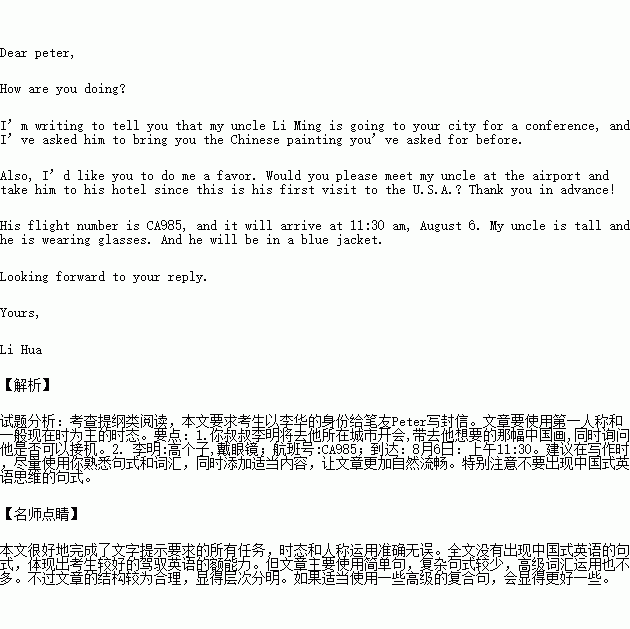题目内容
书面表达
假定你是李华.请你给笔友Peter写封信,告诉他你叔叔李明将去他所在城市开会,带去他想要的那幅中国画,同时询问他是否可以接机.信中还需说明:
李明:高个子,戴眼镜
航班号:CA985
到达:8月6日 上午11:30
注意:1. 词数100左右;
2. 可以适当增加细节,以使行文连贯;
3. 开头语和结束语已为你写好.
Dear Peter,
How are you doing?____________________________________________________
…
Looking forward to your reply.
Yours,
Li Hua
练习册系列答案
相关题目

